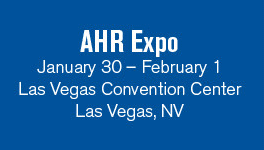Tuesday, January 31, 2017: 11:15 AM-12:45 PM
Water-Energy Nexus
Chair:
Jeffrey Spitler, Ph.D., P.E., Oklahoma State University
Technical Committee: 6.8 Geothermal Heat Pump and Energy Recovery Applications
Sewage water represents an enormous, yet largely untapped resource, that could be used as a heat source and sink for heat pumps providing heating, cooling and hot water to buildings. This seminar presents recent research, development and a project case study of a sewage water heat pump system at the Denver Museum of Nature and Science. This system also processes sewage water on site for non-potable uses.
1 Waste Water Heat Recovery with Heat Pumps: Possibilities and Experiences
Interest in waste water heat recovery in the residential and commercial sectors has increased significantly in recent years. Integration of heat pumps with these systems introduces the possibility to use the recovered heat freely. However, integration of heat pumps also makes these systems more complicated. For the system designer, this means that knowledge regarding the influence of design parameters on the system performance over both the short- and long term is needed. This seminar presentation looks into how different parameters influence the system performance when using heat pumps; a few examples of heat exchangers are also introduced.
2 Recycling Water and Energy at the Denver Museum of Nature and Science, Part 1: System Design
Today’s evolving market for GeoExchange systems continues to develop solutions that are compatible with large buildings in urbanized areas where site areas for a traditional ground heat exchanger are extremely limited. For both new construction and retrofit situations, alternatives to a ground loop may exist such as waste water systems that recycle non-potable water. In fact, there are over 3500 municipalities with some level of recycled water distribution networks. These untapped resources offer both viable performance solutions and higher potential installation and operation cost savings. This presentation covers such a system at the Denver Museum of Nature & Science.
3 Recycling Water and Energy at the Denver Museum of Nature and Science, Part 2: System Performance
This presentation highlights the findings of a case study of a recycled water heat pump (RWHP) system installed at the Denver Museum of Nature and Science in Denver, Colorado. The RWHP system utilizes the recycled water from the City’s water system as the heat sink and source for the heat pump. This case study is based on the analysis of measured performance data, maintenance records, construction costs, and engineering calculation of the energy consumption of conventional central heating, ventilation, and air-conditioning (HVAC) systems providing the same level of space conditioning as the demonstrated RWHP system.





